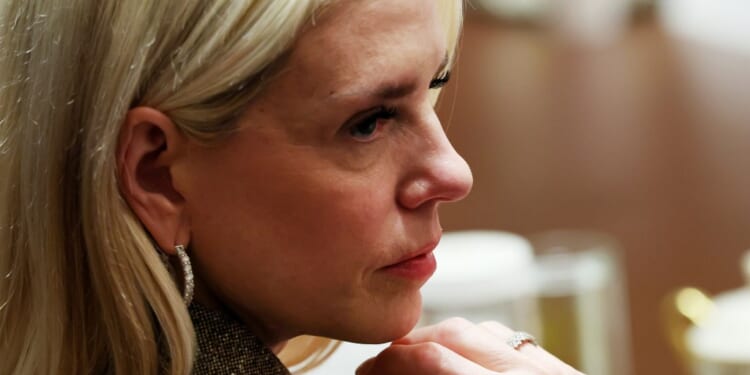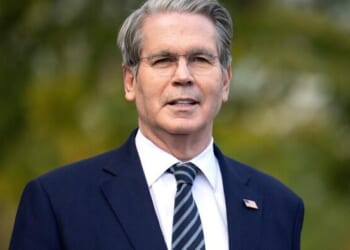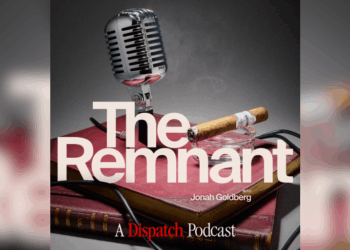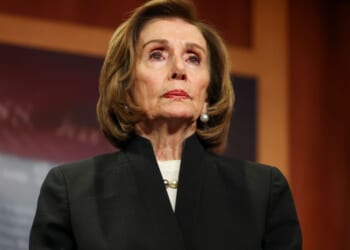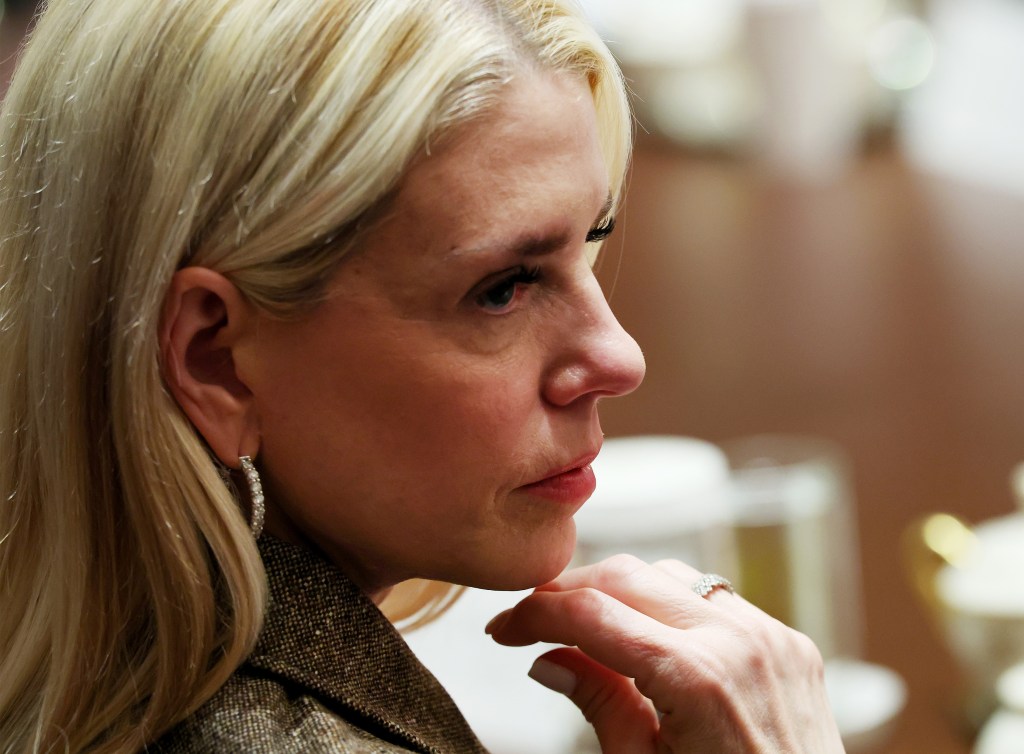
Overt pressure from the president. Attorneys both in management and at the front line in revolt. Two lower-level political appointees—one of whom doesn’t even work at the Department of Justice—overriding the judgment of criminal prosecutors trying to do right by the law and ethical guidelines.
It’s hard to imagine even a Donald Trump loyalist like Attorney General Pam Bondi holding on much longer under these conditions, with decisions at the Justice Department increasingly happening well outside the chain of command and undermining her authority.
Just last week, as multiple news outlets reported, Bondi and her deputy, Todd Blanche, were “caught off guard” by the indictment of New York Attorney General Letitia James on charges of bank fraud and making false statements to a financial institution. Though these senior DOJ leaders were expecting the indictment at some point, the newly installed acting U.S. attorney who brought the case, Lindsey Halligan, did not inform her superiors before presenting her case to a grand jury.
The episode was only the latest example of Bondi being made to look like a mere apparatchik or even a redundant part of the Justice Department. What is the power of an attorney general who doesn’t have prior knowledge of one of the more politically charged prosecutions (so far) of the second Trump term? How much more degradation can one Trump Cabinet member take?
The attorney general is known for being a sharp-elbowed defender of Trump’s administration of justice, using her experience as a frequent guest on cable news to deliver quippy lines and stinging rebukes of the president’s opponents that cast the stakes as constitutional. Bondi has blasted “outrageous, overzealous, unconstitutional judges” and called the lawsuits attempting to block the Trump administration’s executive actions a “constitutional crisis.”
And Bondi has been eager and willing to do some dirty work for a president who views the department as his own personal legal team. She has fired more than a dozen DOJ officials (including the department’s top ethics official) attached to the former special counsel who investigated Trump, Jack Smith; defended the department’s decision to end its criminal probe into top Trump official Tom Homan; and threatened to prosecute elected officials who use their “official position to obstruct federal immigration enforcement efforts.”
But it has been Bondi’s remaining shreds of dedication to her profession that have found her at odds with the president she serves and the movement he represents.
For instance, after years of demands from right-wing conspiracists to tell the true story surrounding the convictions of and suicide by financier and child sex offender Jeffrey Epstein, Bondi and FBI Director Kash Patel released a memo in July with some underwhelming conclusions. Despite the conspiracy theories that had even been egged on by Bondi herself, the memo concluded that Epstein had, indeed, killed himself in his New York prison cell in 2019, and that there was no evidence of a supposed list of high-profile and powerful clients for whom he arranged sex trysts with underage girls.
This memo enraged vocal members of Trump’s base who had hoped for “transparency” on the Epstein issue and saw Bondi as part of the greater cover-up. And Trump himself was reportedly frustrated with Bondi over the blowback from parts of his coalition over the Epstein files flap.
The series of events leading up to last week’s indictment of James has been a parade of humiliations for Bondi the career prosecutor. It’s no coincidence that Halligan, a former defense attorney for Trump himself who has never before worked as a prosecutor, was handpicked by the president last month. She has succeeded the previous U.S. attorney in the Eastern District of Virginia, Erik Siebert, who resisted Trump’s demand to prosecute both James and the former FBI director, James Comey. Under that pressure, he resigned.
Bondi and Blanche had worked closely with Siebert and pushed back against his removal—he was, after all, Trump’s nominee for the permanent job. They were not given much notice or a chance to argue against the selection of Halligan, whom they reportedly worried was too inexperienced. Their private worries turned out to be prescient, with Halligan making some very basic mistakes. When returning the Comey indictment, for instance, Halligan vexed one federal judge by providing two contradictory documents. And in both cases, she has made some embarrassing errors in the official paperwork, including listing James as living in the non-existent “Brooklyn, NJ.”
But more important than first-timer flubs are the apparent weaknesses of the cases against Comey and James.
Attorneys involved in the Comey probe wrote a memo arguing there was insufficient evidence to charge the former FBI director with lying to Congress. Meanwhile, the criminal referral that prompted James’ indictment came from Bill Pulte, the Trump lapdog running the Federal Housing Finance Agency. Following that referral, the indictment claims James committed mortgage fraud by listing a home she owns in Norfolk, Virginia, as a second home to get a better rate, when instead she has been using that home as investment property and rents it to a family. The New York Times, however, reported that the Norfolk home is actually occupied by James’s grandniece, who testified under oath in a separate matter that she does not pay rent. Given the flimsiness of the indictments themselves and the paucity of known evidence, it’s hard to see how prosecutors can soundly obtain a conviction.
And that seems to have been the view of the DOJ career prosecutors who were tasked with investigating both of Trump’s opponents in the first place, backing up Siebert’s reluctance to bring charges against James and Comey. It’s worth noting that, unusually, no other prosecutors joined Halligan in signing either indictment. Multiple attorneys have now left the Eastern District of Virginia office, either by resigning or being pushed out because of their opposition to Halligan’s prosecutions.
“I took an oath to our Constitution … It is this oath that requires you to follow the facts and the law wherever they lead, free from fear or favor, and unhindered by political interference. In recent months, the political leadership of the Department have violated these principles, jeopardizing our national security and making American citizens less safe,” wrote one of those career prosecutors, Michael Ben’Ary, in a letter he taped outside the door to his former office.
All of this turmoil within her own department would be embarrassing enough to Bondi, who, despite her hyperpartisan loyalty to Trump, has spent a long career as a prosecutor and, later, the attorney general of Florida.
But it is the president’s own blatant and public manipulation of his attorney general that ups the indignity. His September 20 post on Truth Social, for instance, reads like a direct message to Bondi, urging her to move forward with the prosecutions of these political enemies, no matter the objections from the actual lawyers. The post, addressed to “Pam,” says in part: “We can’t delay any longer, it’s killing our reputation and credibility. They impeached me twice, and indicted me (5 times!), OVER NOTHING. JUSTICE MUST BE SERVED, NOW!!!”
The Wall Street Journal later reported that Trump had apparently intended to send that message to Bondi privately. But whether Trump really meant to simply slide his demands into her DMs or to put her on blast for the whole world to see, the conclusion is the same: Bondi, and by extension everyone working under her at the Justice Department, is a puppet for a president who prizes loyalty and retribution over a careful and faithful application of the law.

